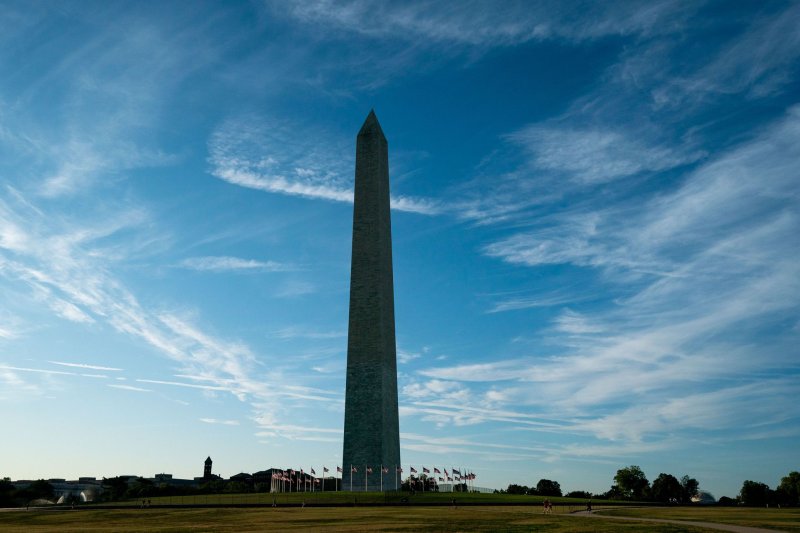Legislation to create the Office on Deaf and Hard of Hearing must first pass a committee vote and then two final votes in the Washington, D.C., City Council. File Photo by Kevin Dietsch/UPI |
License Photo
Dec. 5 (UPI) -- A historic bill that would create the first-ever Washington, D.C., office for the deaf and hard of hearing is moving closer to fruition thanks to a growing movement that argues it's about time disabled Americans have a government voice in the nation's capital.
The bill would establish the Office on Deaf and Hard of Hearing in the district -- which would work in concert with the Office of Disability Rights to enhance existing programs and guarantee access to services viewed as critical to improving the lives of disabled Americans in Washington.
"Having an office for the deaf and hard of hearing has been proven highly effective in many states -- in terms of addressing service gaps, access to government services and shaping public policy," said Graham Forsey, president of the District of Columbia Association of the Deaf. "The District of Columbia should not be an exception."
Thirty-four states have government-level agencies for the deaf and hard of hearing. However, Washington, D.C. -- the seat of one of the most expansive governments in the world -- has none.
It's a strange distinction, Forsey says, considering the nation's capital is home to one of the largest deaf populations, per capita, in the nation. The city also is the home of Gallaudet University, a federally chartered university that accommodates the deaf and hard of hearing.
The bill was introduced by district councilor Charles Allen more than a year ago, but the legislative cycle ended before it reached the hearing stage. It was reintroduced in February.
Next, it will next be marked up and receive a vote in the five-member operations committee, which will decide whether to send it to the full City Council for two final votes.
If passed, the law would lead to appointment of director from the deaf community and three full-time staff members. They would work with the disability rights office and other agencies to influence policy and help determine services and programs that best serve Washington's deaf community.
Sean Maiwald, who authored most of the Office on Deaf and Hard of Hearing bill, said he modeled the prospective office on one in the state of Maryland. But a district office, he said, would accommodate a deaf population that earns greater income and is more entrepreneurial than the national average -- facts he says mandates key access to government services.
"The unique aspects of this office would range from access to government programs and services, a role in improving education outcomes within the D.C. government, to providing a voice in the body politic," Maiwald said. "This voice could include things like transportation -- making sure it is accessible and inclusive, to affordable housing to make sure it is accessible and inclusive."
One way the office would help is ensure closed captioning for all agencies' websites, videos and locations in the district, as well as hearing loops in government buildings, visual signage and American Sign Language interpreters.
Advocate Brianne Burger, who is deaf, first pitched the office to Washington Mayor Muriel Bowser after seeing her at numerous appearances without an interpreter. Burger said the district's emergency management agency has struggled to provide interpreters -- a difficulty that's prevented her from attending key public meetings.
"I had no idea what was happening in my own neighborhood," Burger said. "[I relied] on my neighbors to keep me informed."
Under the proposed legislation, the new office also would provide resources for early intervention and education of deaf youth. Other potential benefits of such an office include new grants for hearing aids, affordable housing for the deaf, communication training for emergency services personnel and a judicial system that interacts more efficiently with the district's deaf and hard of hearing.
Some deaf residents who communicate via methods other than sign language have expressed concerns that the bill may not address their needs.
Maiwald said the Office on Deaf and Hard of Hearing would be nearly universally beneficial, regardless of how the district's deaf prefer to communicate.
"Ninety-nine percent of the solutions that this office can make happen will benefit deaf signing people and will also benefit deaf speaking people."















